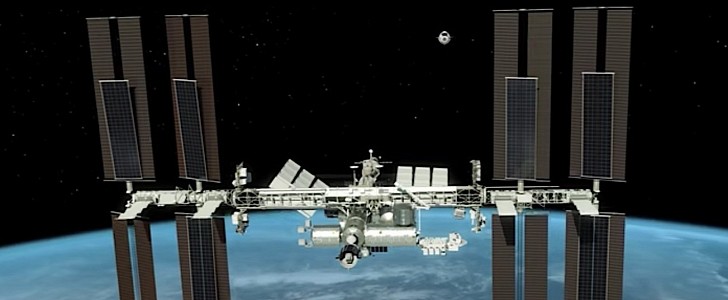In many ways, the Russians were the heart and soul of the International Space Station. They launched Zarya, its first human-rated station component, into Low Earth Orbit. They also shouldered the bulk of the launch burden to get to the station after the end of the Space Shuttle program.
After Rocscosmos informed Russian President Vladimir Putin of their intention to withdraw from the ISS after 2024 in favor of their own creation sent ripples through the aerospace industry. Except for one small problem. No sooner did the rounds start making their way across the globe of Russia's intent to leave the International Space Station did Roscosmos issue another statement clarifying they indeed intended to stay. What will eventually happen? The answer will not be made clear until after 2024.
With all the disarray this international space-faring incident has caused, it's made some in the space community a future where Russia indeed decides to venture off on its own. Or, more likely, with significant help from the China National Space Administration (CNSA). In this scenario, and if a suitable replacement for Russia's considerable contributions to the ISS program isn't found, such a critical scenario may very well unfold.
According to a report from USA Today, at least three American aerospace giants have submitted proposals to NASA and the ESA to pick up the slack where Russia leaves off in the future timeline where they're absent aboard the ISS. Lockheed Martin and their Starliner spacecraft, Northrop Grumman with their Orion, and SpaceX with their Dragon capsule are the three companies purported to be tasked with developing contingency plans for any future Russian exodus.
All three space capsules are actively undergoing testing to become fully fledged interplanetary capable manned space exploration vehicles that could, in theory, do the job currently done by the Russian Soyuz program. Only this time, and with SpaceX especially, production, launch, and crew resupply/transfer will be in the domain of spacecraft built by private enterprises, not government space agencies. What this all means for NASA remains to be seen.
With all the disarray this international space-faring incident has caused, it's made some in the space community a future where Russia indeed decides to venture off on its own. Or, more likely, with significant help from the China National Space Administration (CNSA). In this scenario, and if a suitable replacement for Russia's considerable contributions to the ISS program isn't found, such a critical scenario may very well unfold.
According to a report from USA Today, at least three American aerospace giants have submitted proposals to NASA and the ESA to pick up the slack where Russia leaves off in the future timeline where they're absent aboard the ISS. Lockheed Martin and their Starliner spacecraft, Northrop Grumman with their Orion, and SpaceX with their Dragon capsule are the three companies purported to be tasked with developing contingency plans for any future Russian exodus.
All three space capsules are actively undergoing testing to become fully fledged interplanetary capable manned space exploration vehicles that could, in theory, do the job currently done by the Russian Soyuz program. Only this time, and with SpaceX especially, production, launch, and crew resupply/transfer will be in the domain of spacecraft built by private enterprises, not government space agencies. What this all means for NASA remains to be seen.







